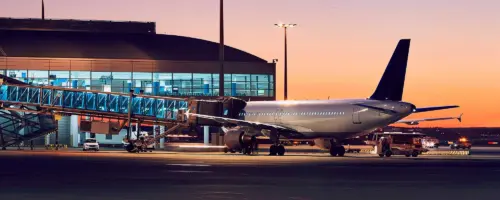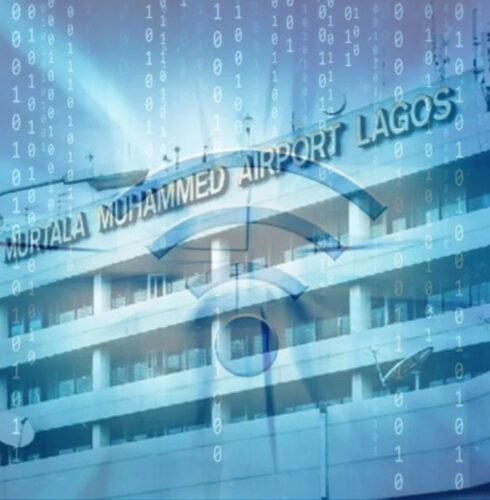
In today’s digital age, reliable internet connectivity has become a fundamental service at airports worldwide. Whether it’s handling urgent emails, navigating new cities, or staying in touch with family, travelers expect free public WiFi as a standard amenity. Yet, in Nigeria, this expectation is far from reality.
Of the country’s 32 airports, only Lagos’ Murtala Muhammed International Airport and Abuja’s Nnamdi Azikiwe International Airport offer any semblance of free WiFi—and even then, the service is often inconsistent or completely inaccessible.
At first glance, travelers at these airports might spot networks like “FREE AIRPORT WIFI FAAN/NCC” or “Glo Free WiFi.” However, these networks frequently fail to load, show persistent errors, or remain completely non-functional. The issue isn’t about intent as the airport lounges managed by private firms typically offer quality internet but a broader mix of infrastructural, bureaucratic, and economic setbacks.
Outdated routers, insufficient access points, and weak backend systems plague the connectivity landscape. Many networks broadcast strong signals with no real internet behind them, creating a facade of accessibility.
Nigeria’s internet backbone which comprise of terrestrial fibre and microwave links is inconsistent even in urban hubs like Lagos and Abuja. Power outages, fibre vandalism, and underinvestment in telecom infrastructure further compound the problem. Frequent downtime and slow reboots have become the norm.
Additionally, there’s a lack of ownership and accountability. Unlike private sector systems, public WiFi infrastructure lacks clearly defined service contracts or responsible maintenance teams. Downtime often lingers for weeks without resolution.
Providing free WiFi is costly. From installing fibre and access points to maintaining bandwidth and uptime, the expenses quickly add up. Without a clear path to monetization—through ads, analytics, or user subscriptions—service providers are reluctant to commit.
Ladi Okuneye, CEO of UniCloud, explained that while airports may fund initial installations, they expect providers to eventually monetize the service. Without heavy user traffic, platforms like Google hesitate to enter revenue-sharing deals, making it difficult for ISPs to recoup costs.
The regulatory environment is another barrier. Service providers must navigate approvals from multiple agencies—including FAAN, NCC, NCAA, and NAMA—each with its own lengthy processes. This red tape dissuades all but the most determined players.

Rotimi Akapo, Partner at Advocaat Law Practice, highlights that post-installation maintenance is another rec
Confusion persists about which agency oversees digital infrastructure at airports. While FAAN manages general airport operations, sources suggest that NAMA is technically responsible for internet connectivity. In practice, both bodies outsource services to ISPs often without proper oversight or performance standards.
In late 2024, NAMA’s Managing Director, Umar Ahmed Farouk, announced restored WiFi services at Lagos’ airport. However, user feedback revealed the network was largely non-functional. NAMA did not provide comment on these complaints.
Despite millions spent on modernizing airport facilities—upgraded terminals, lounges, and runways—digital infrastructure remains sorely neglected. The disconnect between physical upgrades and digital expectations sends mixed signals to travelers.
The absence of reliable public WiFi extends beyond passenger inconvenience. It affects Nigeria’s international image, hampers digital inclusion, and limits productivity for business travelers. Countries like Morocco, Rwanda, Ghana, and South Africa have already integrated WiFi into broader airport modernization efforts. Nigeria risks being left behind.
To address these challenges, experts suggest several steps such as
Clear accountability: FAAN must treat internet access as essential infrastructure and sign enforceable SLAs with experienced ISPs.
Incentivized partnerships: Offer ISPs benefits like ad rights, retail exposure, or tax waivers.
Private sector collaboration: Public-private partnerships can share risk and operational responsibility.
Transparent communication: Airports should clearly indicate available services and set realistic expectations.
Wole Abu, CEO of Equinix West Africa, emphasized the importance of payment structures. “WiFi works in lounges because someone is paying for it,” he said. “If FAAN is ready to pay, the WiFi will work.”
Until decisive action is taken, public WiFi in Nigerian airports will remain a digital mirage—visible on screens, but perpetually out of reach.



